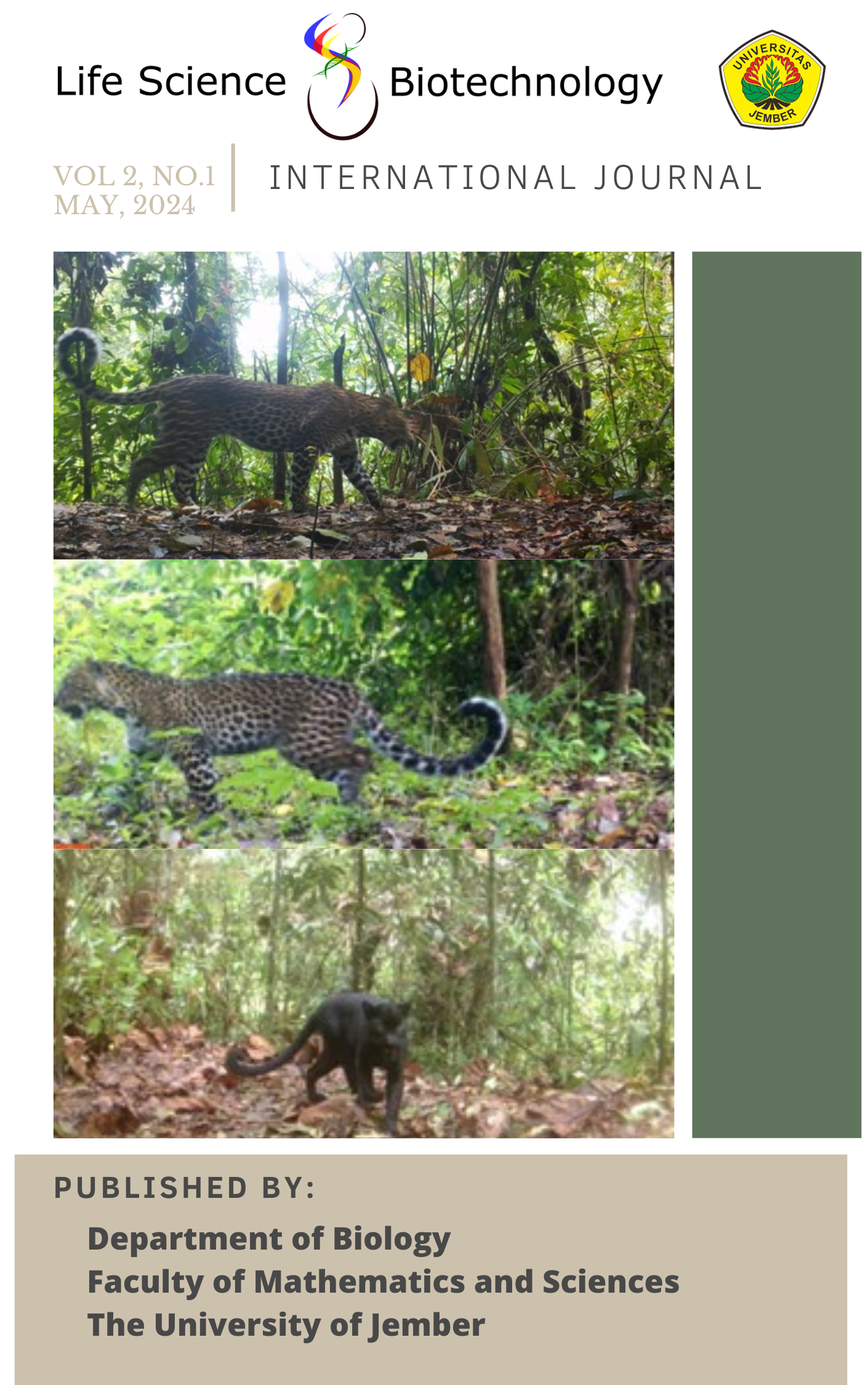Characterization of Apyrase from the Salivary Glands of Ae. aegypti Based on Bioinformatics Database
DOI:
https://doi.org/10.19184/lsb.v2i1.48353Abstract
The salivary glands of mosquitoes, which act as disease vectors, contain biological components that facilitate the blood-feeding process and transmit pathogens to the human body. Apyrase, a protein from the salivary glands of Ae. aegypti, is known to be an immunogenic protein that influences the host's immunity. It can prevent platelet aggregation by hydrolyzing ATP or ADP into AMP and thus facilitate the blood-feeding process. This mechanism is also exploited by pathogens to obtain entry into the host's body. Vaccination with the apyrase protein could control dengue virus transmission by enhancing the immune response to inhibit the pathogen's entry. To examine the potential of apyrase, it is critical to explore its nature and characteristics by using bioinformatics databases. This quantitative descriptive study involved apyrase protein from the salivary glands of Ae. aegypti obtained from several bioinformatics databases, namely UniProt, SWISSMODEL, ENZYME, Rhea, CFSSP, GlyCosmos, STRING, and QuickGo. The findings contribute to a more fine-cut understanding of apyrase as a potential vaccine to inhibit dengue transmission.




